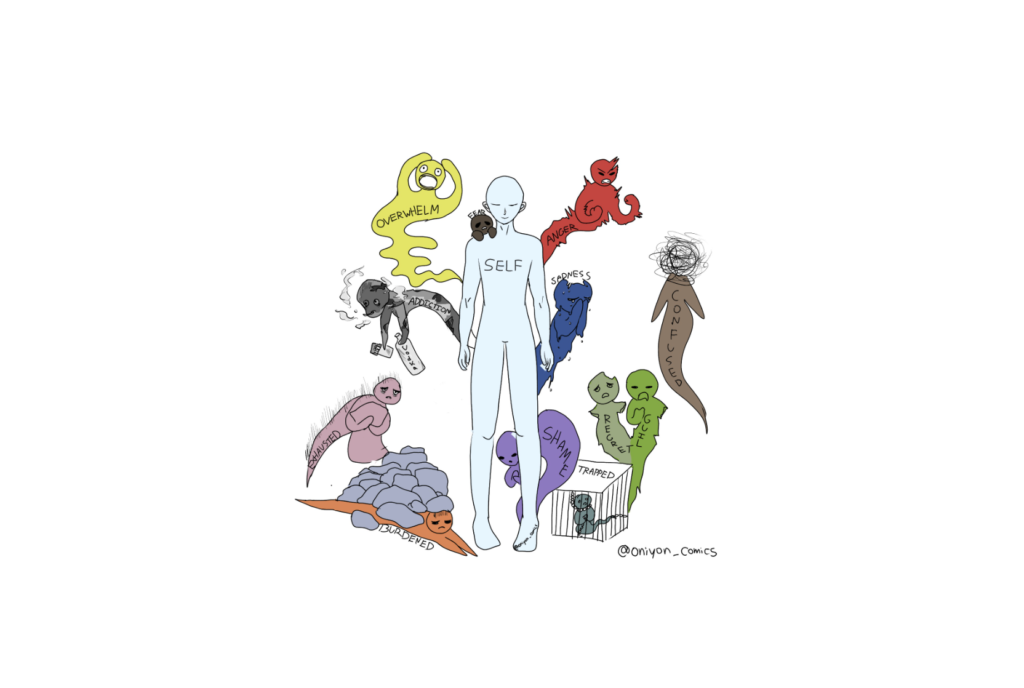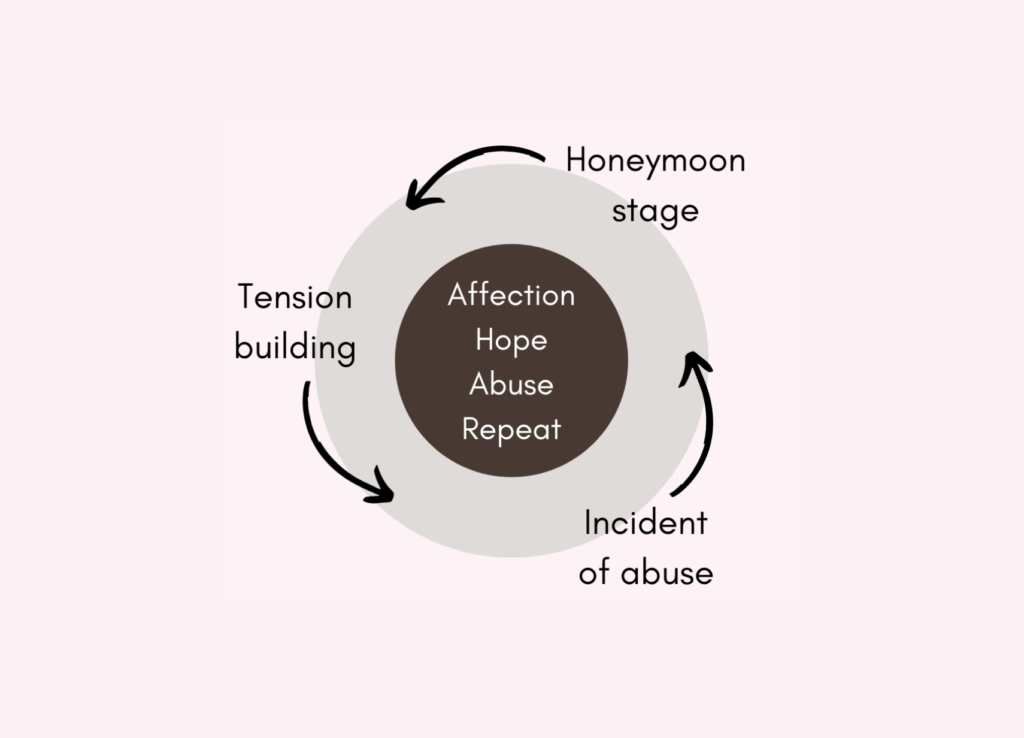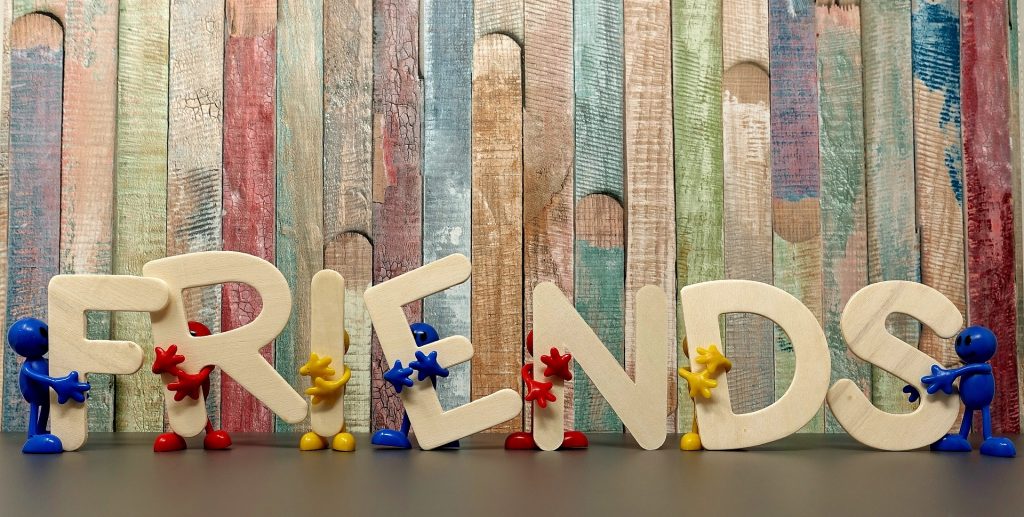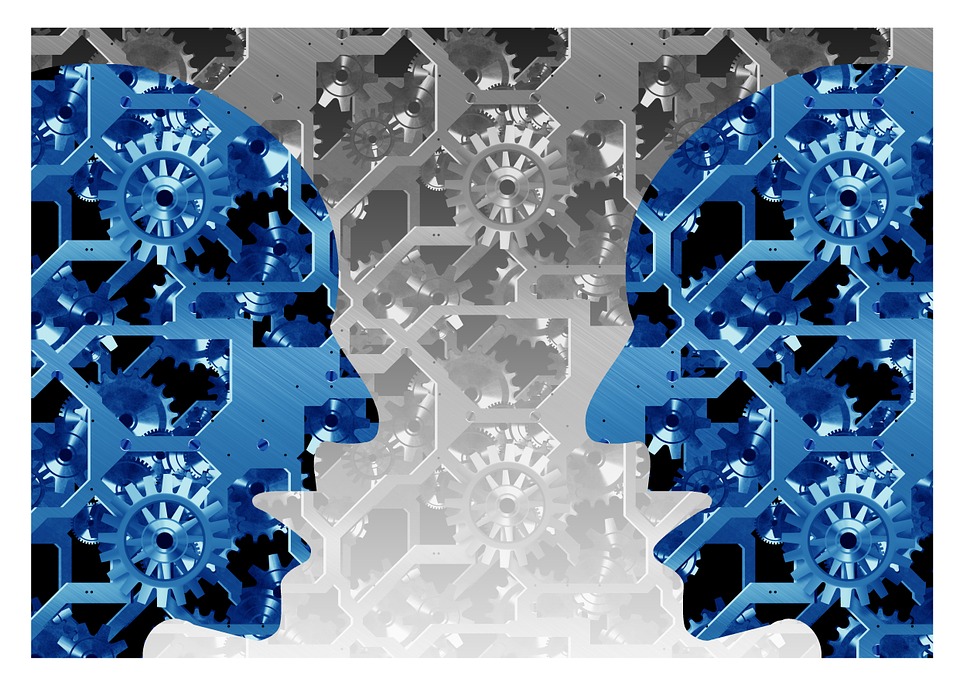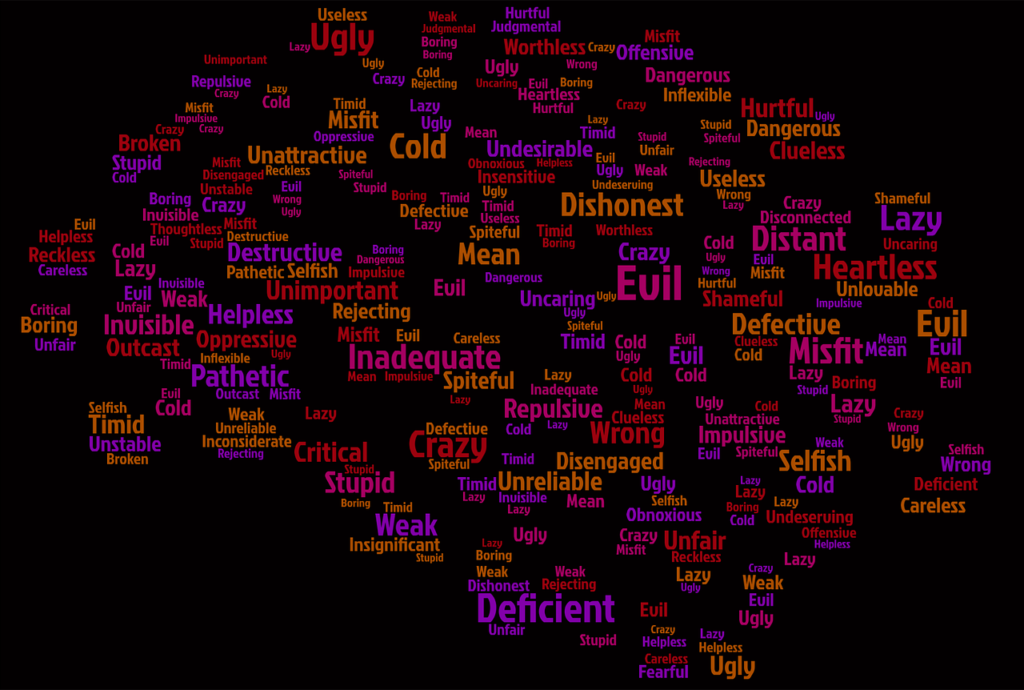Emotional Wisdom
?
What is enmeshment? 12 signs of enmeshment trauma
Have you ever felt like your mother’s needs have become your own? Do you struggle to differentiate between your identity and hers, feeling as though you’ve merged into one person? This is called enmeshment trauma. In an enmeshed family, there is too much closeness between family members. The roles are blurred and instead of a daughter you have to be a care-taker, advisor and your mother’s friend. In enmeshed family dynamics, your mother will take on the role of acting like a needy child who cannot survive without you. She’ll impose her worldviews on you by saying things like: “Outsiders are a threat to our family” and “you can only rely on family” or “family secrets should never be shared”. These teachings only benefit her of course and if you go against them, she’ll call you a traitor. Even if you want to do normal things like moving out, get married or get a job in a different city, she’ll make you feel so guilty that you’ll stay glued to her out of fear. You’ll feel responsible for her happiness and you give up time, money, freedom and yourself to keep her happy. She may demand to live with you to get her needs met through you and to keep her control. Enmeshment also means that you need to act like her parent throughout your life and she’ll expect you to listen, stay by her side, drop everything you’re doing and run to her aid. You have to marry someone she believes will “fit” into the family dynamic. If she doesn’t like the person you’re dating she’ll reject him and threaten to disown you if you marry without her permission. Enmeshment is a dynamic that creates a suffocating feeling of being overly close and feeling trapped. Instead of being mothered you’ll be smothered and if you complain, she’ll disengage until you allow her to smother you again. The goal in enmeshment is to mould you into a “puppet” who will do exactly as she says. To outsiders, enmeshment can look like your mother is a devoted parent which is why it’s difficult to see it for what it is; a toxic connection. This article will focus on the mother daughter enmeshment dynamic but enmeshment can happen in any relationship. 1. Lack of Boundaries The first sign of enmeshment in a mother-daughter relationship is the lack of boundaries. Your mother will teach you from an early age that she doesn’t care about your boundaries. When you’re a toddler and express that you feel full, she’ll ignore it and force-feed you. If you say that you’re hungry, she’ll say, “No, you’re not hungry.” The enmeshed mother will demand hugs and kisses from you even when you express discomfort or a desire for personal space. Children are great at expressing their needs through body language. Think of a toddler who doesn’t want to eat or be kissed; what do they do? They move their body back, make a “mm” sound, or shake their head to say “NO!” But this is ignored by the enmeshed mother. She’ll ask you to mirror her feelings, decide what you need, and tell you when you’re sleepy instead of letting you tell her. Treating you this way teaches you from an early age that you cannot trust your own instincts. When you express sadness or anger, she will dismiss your feelings by saying things like, “You don’t really feel that way” or “You’re just being dramatic.” She can even decide when you should see a doctor or take medication, teaching you to ignore your body’s signals. This can have a dangerous impact on you as an adult because it can lead to unwanted sex, allowing people to touch you when you don’t want to be touched, and not even knowing that a boundary has been crossed because you’re so used to not having any boundaries. If you don’t know there is a line to begin with, how will you know when it’s been crossed? As you grow older, she’ll try to dictate your career path and academic choices as if it’s the natural order of things. Since she sees you as an extension of herself, she’ll often use the word “we,” such as “We will be a doctor when we grow older.” She’ll disregard your interests and passions, insisting she knows what’s best for you. Enmeshment also means it’s common for your mother to invade your privacy by going through your personal belongings, such as your diary, letters, or phone, without permission. She’ll impose her religious and political beliefs on you, never allowing you to explore or express your own views. She’ll interfere in your personal relationships to maintain control and a constant fusion. She acts as if she can live her life through you, as if you’re her puppet who will nod, dance, and twirl at her whims and fancies. As a daughter of an enmeshed mother, these behaviours teach you that your boundaries don’t matter, creating a lifelong pattern of dependence and control. If you’d like to begin your healing process through trauma therapy, contact me here for a free session online and we can begin. I always answer within 24 hours. 2. No Room for Individuality In order to know others, you must know yourself. But in enmeshment, there is no room for your sense of self or individuality. You must become “de-selfed” to exist in an enmeshed family. The enmeshed mother does everything to erase your individuality. Your personal feelings, thoughts, wishes, opinions, and tastes will not be recognized or even allowed to exist. She will tell you what to like, what to think, what to believe, what food to enjoy, what humour to appreciate, and what music to listen to. From an early age, she will work against your natural instinct to separate, making it feel impossible for you to develop a sense of self. As a child, you need connection, and in the enmeshed dynamic, you realize that to connect with your […]
15 signs your mother is narcissistic and how you can heal
If your mother is narcissistic, she’ll disrespect your limits, treat you as an extension of herself, turn you and your siblings against each other, and switch between being kind one day and evil the next. She’ll set expectations that are impossible to meet because she keeps changing the goalposts. She’ll rage if you question her and use the silent treatment when displeased. She’ll pretend to be the “perfect mother” so everyone thinks you’re the problem whenever you tell the truth about her. She expects you to admire her, and when you don’t, you get severely punished. When you do, she’ll occasionally reward you with fake affection, appreciation, and connection (love-bombing). She doesn’t care about your needs; the few times she does, she’ll remind you to be grateful. If you’ve ever wanted to ask your narcissistic mother: “Why can’t you just love me? Why do you manipulate and control me? Why do you make me feel like I’m never good enough? Why do you turn others against me? Why do you deny things that you did to me? Why can’t you ever admit to what you’ve done?” This article will help you. These questions are only a few that daughters of narcissistic mothers ask me on a day-to-day basis and throughout my years of practice as a therapist. I want to help you determine what’s what; Is it really you that’s the problem, or is it your mother? Let’s find out! This article is about narcissistic mothers but anyone who behaves this way is also narcissistic so if you recognize these behaviours, it applies to your situation as well. 1. She has an Insatiable need for Approval and Adoration The narcissistic mom always craves attention and loves being showered with praise. Adoration is her drug, and without it, she feels completely lost. It doesn’t matter if she’s earned it; she demands it from everyone, all the time. She leaves no space for anyone else’s needs or desires but her own. As a young daughter, you’ve probably felt invisible most of the time because you were never allowed to take up space. Any attention you received got snatched away by her in an instant. You may have felt pushed aside and used, as she always puts herself first. Growing up with a toxic mother, you quickly learned that her needs, comfort, and ego must come first, never yours. If you expressed your needs, she would see that as an attempt to overshadow her! 2. She will criticize you in the aim to destroy your confidence and build up her own The narcissistic mother will trample all over your growing sense of self, constantly putting you down to chip away at your confidence and self-esteem. She’ll pick on you, be angry for no apparent reason, and brush off your feelings as if they don’t matter. If you dare to stand up for yourself against her criticism, she’ll often hit back with phrases like “You’re so unforgiving” or “You’re too sensitive.” Even though she’s the one causing you pain, you end up feeling guilty and ashamed. This manipulative tactic makes her feel superior and gives her the upper hand, leaving you feeling inferior, small, insecure, and always questioning if you’re good enough. When she’s feeling insecure, disappointed, or deflated, she’ll take her frustration out on you, and the worse you feel, the better she feels. This abusive treatment seriously damages a daughter’s confidence; it can feel as if it’s non-existent. The narcissistic mother takes credit for your successes and blames you for her own unhappiness in life. Even when you try to enjoy yourself for a moment, she’ll make you feel guilty and stressed, saying things like, “You’re forgetting about the chores and homework you need to do.” This constant pressure trains your young mind to always be hypervigilant, even during enjoyable moments. That’s why many adult daughters struggle to relax, always thinking about the next task on their list, feeling like they haven’t done “enough” to deserve rest. The constant criticism not only keeps you on edge, it also teaches you to keep your head down and aim low. The thought process goes like this: “What’s the point of even trying when I know I’m never going to be good enough anyway?” Even as an adult, you might feel scared of trying new things because you expect to fail. When you muster the courage to go for it, she’ll be there to criticize you and make you feel small. Many daughters tell me they still hear their mother’s voice inside their head, saying things like: “Don’t think too much of yourself,” “You’ve always been a slow learner,” or “You’re always going to be difficult to deal with.” Naturally, this makes it really difficult to achieve your goals and dreams because you go out into the world feeling fragile, insecure, and one rejection letter is all it takes for you to think, “Mom was right, I’m no good.” These critical voices that belong to your mother can haunt you even after she’s gone if not dealt with. The seeds of doubt that she planted in you continue to criticize you when she’s unable to do it herself! This is how insidious and damaging narcissistic abuse truly is. She’s always ready to dish out criticisms as if they’re badges of honour, saying painfully hurtful things like “your eyes are too close together,” “your nose is too big,” “you’re too fat,” “you’re too thin,” “your legs are too heavy,” or “they look like toothpicks.” She’ll remind you of the things she once praised you for, only to later declare, “You’re such a disappointment!” when you fail to live up to the “ideal” daughter. You have fallen short of her expectations! Her impossible expectations. If you can relate so far, I’m very sorry you’ve had to go through this. It’s not fair, it’s not right; what she’s done to you is unacceptable! But, you can heal from her abuse! I’m a trauma therapist and if you would […]
Best friends with your mom? You may be enmeshed, here are 10 things you can do.
If you’ve grown up being told that you’re best friends with your mom and that this is a good thing, you are not alone. You might have grown up with people around you envying your relationship with your mom saying things like “wow you’re so lucky, I wish me and my mom were that close”. Being close to your mom isn’t a bad thing, but if this closeness starts to make you feel suffocated, it’s called enmeshment between mother and daughter. Enmeshment trauma is like feeling sucked into your mothers emotional vortex of drama every time she feels low or annoyed by something you or someone else did. You may have to put your entire life on hold because your mom is deciding to have another tantrum because a) her boyfriend left her (again), b) She’s really anxious about how your sister treated her yesterday or c) She doesn’t feel satisfied in life and she lowkey blames you for it, this my dear, is not friendship on any level. This is enmeshment trauma which means there are no boundaries between the two of you. You feel like you need to carry the emotional burden of taking care of your mom as if she’s your child and not the other way around. You turn yourself inside out in order to please her, but all you hear are sighs of disappointment and complaints on how you should give more next and stop being the most “selfish” person in the world. It’s as if she actually believes you can split yourself into multiple clones to quickly and perfectly adjust to the roles of surrogate husband, therapist, BFFs on ‘Sex and the City,’ personal nurse, financial planner, and hey, while you’re at it, you might as well offer her a place to live now that you’re an adult and making money. Oh, and don’t forget her allowance each week so she can do personal shopping and fulfil all her other needs with your hard-earned money. What’s next? Is she going to kick your hubby out of your bed so that she can sleep next to you? Unfortunately, scenarios like these actually happen when it comes to enmeshment trauma! If you feel like you are going mad and that you can’t win no matter what you do, if you feel confused and overwhelmed with guilt every time you think of saying no to her, do not lose hope—I am here to help! In this article, I will share with you 10 ways that you can protect yourself from your mother’s smothering and unreasonable demands on you. I will share real client examples so that you can learn from their journeys of healing from enmeshment trauma with Mom. So let’s dive in. 1. Awareness and acceptance If you’ve found yourself reading this article, chances are you’re starting to become aware that something is wrong in your relationship with your mom. You might have realized that she’s too involved in your life to the point where you start to feel suffocated and drained of energy. Maybe she’s living with you or insists that you call her every day so she can tell you the latest drama in the family or in her personal life. She doesn’t respect that you have your own life, family, or other things to do, if you try to set boundaries, she’ll make you feel so guilty that you end up giving her everything she wants, at your own expense. You may notice that she wants to be part of everything, and you’re not sure where you end and she begins. You may also be aware that when she finds a new partner, a new hobby, or anything else that brings her happiness, she may distance herself from you temporarily. But when she breaks up or has a fight with her partner, she may come rushing back to you like a child needing comfort and soothing. Meanwhile, you feel drained, confused, angry, inadequate, stretching yourself too thin, and bending over backwards to meet all her needs, but it’s just not enough. If you’re starting to see some of these patterns as unhealthy and not right, this is a very important first step. I acknowledge your courage to start looking into these things. Accepting that things aren’t picture-perfect isn’t easy, and I understand why you’re looking for answers. You’re most likely still attached to your mother and love her dearly but your mother is getting more and more demanding as time passes and nothing you do seems good enough for her. You feel as if you must take care of her needs, but as you try to, she only criticizes you for doing it wrong. When you talk to her about any of this, she may deny it completely, claim that you’re exaggerating, blame you for doing things wrongly, stating that this is the reason for her behaviour. She never takes accountability or looks at herself; somehow, every discussion you have with her ends up being about your “inadequacy”. 2. Reflect on your emotional independence and dependence on her Dependency acts as the soil from which the roots of a mother-daughter enmeshed relationship grow, while confusion and guilt are the weeds that sprout in the garden. The antidote to confusion is clarity, and the antidote to guilt is placing responsibility where it belongs. In other words, you got to rip the weeds from their roots! Let me guide you through an exercise to help you gain clarity on your relationship. Grab a pen and paper (no devices) and create two columns. In one column, write “What my mom does for me with or without conditions,” and in the other, write “What I do for mom with or without conditions.” Be honest as you begin writing. For example, a client of mine listed what her mom does for her: Listens to her at times, helps with the kids occasionally, cooks when she’s around, provides financial support, plans activities, and checks in on her. In the […]
14 Signs Your Partner is Enmeshed with his Mom
Have you ever felt as if you’re not just dating your partner, but his mother too? You’re not alone. When your partner is too close to his mom, it can feel like she’s the third wheel in your relationship. In this article, we will examine the signs indicating that your partner is enmeshed with his mother and how this affects your relationship. From needing his mom’s input in decisions to relying on her for emotional support, and vice versa. Lastly, you’ll learn how trauma therapy can help you heal from the traumatic effects being in this kind of relationship can have on your mind and body. I’ve used “him” in this article for simplicity, but it’s important to note that a woman can also be enmeshed with her mom. 1. Always Takes Mom’s Side Imagine you and your partner find yourselves disagreeing, perhaps over something as simple as where to spend the weekend. Your partner consistently takes his mom’s side, even if it’s not what you prefer or what’s best for both of you. Your thoughts and feelings get brushed aside, and you start feeling like you don’t matter. This is a sign of enmeshment between your partner and his mom, indicating an unhealthy closeness with a lack of clear boundaries. If your partner has a hard time prioritizing you and your relationship over his mother, it makes sense for you to feel hurt, ignored, angry, and like a second-class citizen in your own home and relationship. 2. Mom Knows Everything When your partner shares every detail of your private life with his mom, from fights to what you had for lunch, it’s a sign of enmeshment. There’s no privacy left, leaving you exposed, angry, and anxious. This constant sharing can feel like you’re being observed, affecting your ability to express yourself freely. Even when she’s not present, it feels like she is, creating a creepy feeling. Your life’s details are out there for her to see without your say-so. Their lack of boundaries drags you into their unhealthy dynamic, making it hard to express yourself. If you get the sense that you ended up marrying his mom along with him, you’re not alone because most women who are with mother-enmeshed men feel the same way. Their dynamic is very unhealthy and you shouldn’t have to feel this way. If this is what you’re going through currently, I truly feel compassion toward you as I’ve been in a similar situation in my past and know how it feels. Your feelings make sense, and I encourage you to trust them—they’re a sign that something needs to change. If he tries to tell you that your feelings don’t make sense or are exaggerated, it’s usually because he’s in denial and can’t see clearly. Nevertheless, this is a form of gaslighting, which means he is denying your reality. So, I’m here to tell you that your feelings are real. 3. Needs Mom’s Approval Now, imagine a scenario where you and your partner are making a decision together, maybe something as straightforward as what color to paint the living room. But your partner insists on getting his mom’s approval for every choice, as if her opinion matters more than yours. You may feel undervalued, frustrated, and disheartened. His desperate need for his mom’s approval resembles that of a child who hasn’t completed the natural separation between mother and son. It’s charming when a 5-year-old seeks mom’s opinion on choices, wants, and needs. However, it’s not cute when a grown man behaves like a 5-year-old. Something is deeply wrong, and this is another sign of an enmeshed relationship between mother and son. If you’re feeling inadequate, confused, angry, and questioning your role in this relationship, rest assured that your emotions are normal. 4. Chooses Mom Over You If your partner seems to prioritize his mom over you regularly, this is also a sign of enmeshment. He may cancel plans with you to be with her or consistently place her needs above yours. It’s like he’s chosen his mom as the top priority in his life, and this can leave you feeling rejected and unimportant. You deserve to be more than second best in your partner’s life, and if he’s more committed to his mom than to you, his relationship with her is enmeshed. How does this make you feel? Take a moment to notice how your body feels when he chooses his mom over you or does anything else on this list. Does your stomach turn? Do you get a headache? Does it feel hard to breathe? Do you sense a tension in your chest? Do your shoulders get tense? Do you feel smaller? If I were you, I would listen to these body sensations because they are parts of you trying to tell you something. Connecting with your inner world for even a moment and listening to your emotions and body sensations – can give you valuable information about yourself. Trust your instincts and your body. 5. Rushes to Help Mom Imagine the times when you need your partner’s support, perhaps when you’re facing a challenging situation. However, every time, he drops everything to help his mother, even for minor things like fixing a leaky faucet at her place or assisting with paperwork. In cases like these, the mother can also be highly manipulative and make minor things sound like an emergency. He can then argue with you that it is an emergency and he has to go. Let’s examine why this dynamic is wrong and unhealthy. Mother and son seem to have an understanding that he should be the first person she calls in case of an emergency. The reality is that she is an adult and can very well call a plumber or 911 if there is an actual emergency. Even if her son were a plumber or a doctor, he has his own life, as any healthy parent-child relationship recognizes. Both of them may bring up technicalities […]
10 Warning Signs Your Partner May Be a Misogynist: Is He a Man Who Hates Women?
What does misogynistic mean? In Dr. Susan Forward’s book “Men Who Hate Women and Women Who Love Them,” she defines a misogynist as someone who deeply dislikes and distrusts women. According to Dr. Forward, misogynists feel entitled and lack empathy toward women.
What is Internal Family Systems (IFS) therapy? Healing trauma by meeting your internal family
Have you ever felt like you were at war with yourself? Do you have different parts of yourself that seem to be in a constant battle? Maybe there’s a part of yourself that you wish you could just get rid of, but no matter how hard you try, it just won’t go away. Internal family systems therapy helps you to find internal calm and heal past trauma.
30 Signs You’re Dealing With a Psychopath
Dealing with a psychopath or a person with psychopathic traits can lead to feelings of severe depression, loneliness, uncontrollable rage and can plunge you into a place of emotional darkness and despair. Wounds that you never knew you had can surface all at once from being with a psychopath because they so easily (and happily) will use your vulnerabilities against you.
Are you tired of hurting in your relationship? 7 signs you may be trauma bonded
Trauma bonding is when you’re attached to a person (abuser) who consistently betrays you in one way or another. This could be emotionally, physically, financially, mentally or verbally. Yet, you feel addicted to the abuser and panic at the mere thought of leaving.
12 mistakes you want to avoid when dealing with a narcissist
You may be falling for the traps narcissists put out for you. In this article, you will learn 12 mistakes that you may be making with a narcissist and other emotionally abusive people. You’ll know what to look out for and what to avoid doing to get some of the control back into your hands. It’s better to equip yourself as much as you can when dealing with a narcissist (or leave them if you can) so you don’t hurt yourself even more. So here it is, 12 mistakes to avoid dealing with a narcissist. 1. Trying to earn the narcissistic person’s love Do you find yourself fighting to earn the narcissistic person’s love? It’s impossible to make a narcissist love you because they don’t want to learn and do not know how to love you. A narcissist lacks empathy and doesn’t believe they are wrong. So they will lack any motivation to change. Try avoiding this mistake of working hard to earn their love. 2. Ignoring your emotional pain Are you ignoring the pain you feel? Numbing it with food, games, sleeping or drinking too much? This is quite common because you may feel really heartbroken, exhausted and angry. Numbing your pain will only make the pain grow stronger because the pain needs to be let out. By feeling the pain you’re letting it out and accepting the truth which is that this person is bad for you. So I urge you to feel your pain, accept the truth within you, even if it’s just one part of you that knows the truth, believe it. Listen to that part. Is the voice within you asking you to leave? Is it asking you to set stronger boundaries? Is it asking you to seek help from a professional or a friend or just someone who will understand? Don’t ignore your pain, listen to it and act on your inner voice, it is your truth speaking to you. Think of what will happen if you don’t listen to it. 3. Hoping he/she will change Are you hoping that your mom, dad, or spouse will change? Maybe you think you can help them change? If only you’d love them more, if only you don’t trigger them so much if only they’d go to therapy, if only…fill in the blank. If so, know that narcissists don’t think there is anything wrong with them as I’ve mentioned before. This is part of the problem of being narcissistic. You cannot convince them to change their behavior, way of thinking, or anything else about them no matter what you do. I know this sucks. But, a narcissist will never change, don’t want to change, don’t see anything that needs to change in themselves. 4. Remembering a time they showed you love or empathy Are you remembering a time they did show empathy? The only reason a narcissist shows empathy is when they need something from you. Basically, they do this for themselves, not because they suddenly realize for a moment what love is. Pretending to be loving in order to get something from you isn’t love. It’s merely an act and really about being manipulative. Narcissistic people are fantastic manipulators and they can do it with charm. This kind of manipulation is awful and wrong. 5. Making excuses for the narcissist’s behavior Have you ever called a narcissist out for his or her bad behavior? How did that work out for you? Clients tell me their stories where they try to break free by confronting their parents or partners about their narcissistic behaviors. But it always backfires. Why? Because the narcissistic person will tell you how sad his or her life has been. How rough they had it while growing up. Whether this is true or not doesn’t matter. You start to feel sorry for your parent and guilty for confronting them. To feel sorry for a narcissist is one of the biggest mistakes you can make. This is exactly what he or she wanted. Again, you’ve been manipulated. You’re the victim, yet, suddenly they make themselves look like the victim and you’re left wondering “What the f*** just happened?”. You don’t want to end up making excuses for their bad behavior toward you. There is NOTHING that justifies their abuse. You had/have it rough too! When you were a child, they were adults and therefore they were responsible for their behavior, to take care of you and do something about their problems. Be aware of this very common mistake, don’t get sidetracked by the narcissist’s manipulation. They feed on all the attention you give them and they don’t give a damn how you feel or what you need. This is not ok. 6. Getting dragged into their drama Narcissists crave attention, love to talk about themselves, and lack empathy. Clients who deal with narcissistic parents tell me how they get dragged into the emotional drama. One example is Marc (not his real name) who has very recently been able to set boundaries with his narcissistic father. His father doesn’t like this at all, because he is losing control over his son whom he has been controlling throughout his life. He doesn’t want him to become independent and is noticing that Marc is becoming aware of his father’s abusive ways. Marc is even able to say “no” to his father’s constant attempts to control his life. In order to get Marc to obey him once again, Marc’s dad acts sly and forces his wife to check up on Marc. When Marc was able to tell his mom that he was busy and had his own things to focus on in life, Marc’s dad sent several other people in the family to “talk” to Marc. Marc’s narcissistic dad was trying to make Marc feel guilty for not giving enough time and attention to him. When this also failed, however, Marc’s father had a complete meltdown and verbally abused his son through a series of rageful […]
Stop multitasking now! And start being mindful of each task
Being mindful simply means to be conscious or aware of something. This could be something as simple as your breathing, the sky, what you are doing, thinking or feeling. Being mindful of our breathing, in fact, is one of the most basic and important things we all need to do more of.
If you feel lonely and want friends, here’s what you can do
Loneliness is when you realize that you don’t have enough people or friends around you or the few people that you have, you don’t have much in common with, let alone any meaningful relationship with. It’s when you feel excluded from a group, unloved by others around you and when you’re unable to share your concerns.
6 ways for you to deal with toxic people
Do you feel unfairly treated? Does it feel like you’re putting up a mask around some people only to act “appropriate” and be accepted? Do you feel almost forced to try and please someone? Are you tired of dealing with toxic people? If that’s you, please keep reading.
This Thanksgiving Change A Behavior & Thank yourself for it
Do you know some people go to psychological therapy to talk about their destructive behaviors to feel better about themselves? Even though they’re aware the behavior is wrong. After the session is over, they go right back to behaving in the same destructive way over and over.
Easy & Fun Way For Your Daily Dose Of Happiness. The Compliments List
Firstly, I want to apologize for writing less often. The reason for this is that I’ve started with an online Bachelor’s program in Psychology which is taking up most of my time. I’m super excited about my studies because it is what I always wanted and I’m finally doing it. That being said, I will try my best to keep giving you useful content as regularly as I can. I appreciate your understanding.
Asking for help does not mean you’re a burden. Here’s why…
Do you have trouble asking for help? Do you think it’s a sign of weakness admitting you could use some help? Are you afraid people will say no or see you as a burden if you would ask? Or a voice within simply says something like, “I’ll do it myself. I don’t want to bother my friends or family. They have enough going on themselves and besides my problems are nothing compared to theirs.”
3 Addictions You Ought To Have – Love, Respect, Compassion
An emotional roller coaster of drama, pain and suffering. And then, when you least expect it, comes the loving, that you’ve been longing for. And yes, it does feel good when the love finally arrives. It works as a painkiller, until you’re back up on the roller coaster sooner than you wanted. Unfortunately this is the way a lot of people’s personal relationships looks like?
Do You Feel Unappreciated? Try This For A Change
If you ever feel unappreciated, you’re not alone. It sucks feeling like you’re not being appreciated enough for the things you do. Especially when you do it for the people you love. Instead maybe you get to hear the things you don’t do right and how you “always do something wrong”. I think it all comes down to one thing in the end. Do you appreciate yourself?
How You Can Win Every Argument With These 7 Steps
You’ve finally reached home after a tiring day at work and it’s been one of those nasty days where nothing seemed to go right. You open the door and almost make it to the living room when you’re spouse greets you lovingly but he/she wants to talk. Instantly you’re feeling exhausted and don’t feel like talking at all. Still you say, “Ok. What do you wanna talk about?”
Are You Drowning in Guilt? Reading this can help you change that
This article will help you get clarity if You’re being torn apart by feelings of guilt. You know, when you want something but that voice pops up “I shouldn’t” or “I can’t”. I’m referring to the times you don’t do something because it might hurt someone else.
Answer this. Who are you?
I think that it’s hard to try to become what we think we should. Our minds are susceptible to all sorts of incoming information. And these days we are bombarded with messages, pictures, ads, videos and all kinds of suggestions on how to live and who we should strive to become.
Love yourself just as you are
I remembered when I first read a post about how to love yourself I felt appalled. Why? Because I was in a passionate (or so I thought), crazy and “complicated” relationship at the time and the last advice I needed to hear was how to love yourself by being by yourself and taking care of yourself. I honestly didn’t even know what that meant exactly.







